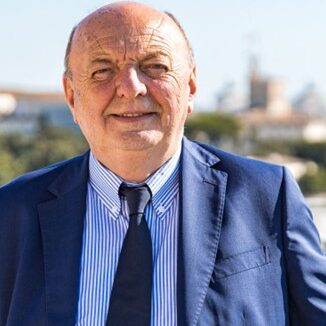As Presidency of the G7, Italy is working with commitment and responsibility to address the challenge of climate change in every aspect, as part of the triple global crisis to which the biodiversity loss and pollution also contribute. The international effort in charting a path to reduce greenhouse gas emissions calls on all of us to strive towards a fair and efficient development of sustainable cold chains at a global level. The cooling sector alone accounts for around 7% of global emissions whereas it plays a significant role in the growth of global energy demand. As is known, the sector ensures a series of fundamental services for people and essential benefits for human health. The development of sustainable cold chains helps us in the ethical, environmental and economic challenge of reducing food waste.
Italy has been working for years, in line with the Rome Declaration adopted in 2019 by over eighty countries, to highlight the key role of the cold chain in the promotion of food safety and to fight waste, responsible for around 8% of global emissions. The lack of adequate cold chains affects the quality and safety of food, with consequences on people’s lives as well as environmental costs. At the same time, the strong development of renewable energy and the implementation of energy efficiency technologies represent decisive elements, to be considered with great attention to understand the future of this sector. Italy works at the forefront on these issues, aware of the transversal role of “cooling” in pursuing the Sustainable Development Goals. Already at the COP28 in Dubai, under the Presidency of the United Arab Emirates, Italy joined the “Global Cooling Pledge”. Our country is also a partner of the “Climate and Clean Air Coalition”, with which together with FAO, UNEP and the Ozone Secretariat it prepared a report on the sustainable cold chain in 2022 with recommendations addressed to Governments and institutions on environmental sustainability along the cold chain. The “Venaria Charter”, the outcome of this year’s G7 negotiation work, presents ambitious convergences on this topic. The Seven Countries have in fact welcomed the “Global Cooling Pledge”, committing themselves to “work together with the aim of reducing cooling related emissions across all sectors by the least 68 percent globally relative to 2022 levels by 2050”. At the same time, the G7 in Venaria Reale committed to “maintaining a high level of ambition to sistematically implement the Global Cooling Pledge and strengthen relevant existing initiatives delivering sustainable cooling in order to achieve both climate mitigation and adaptation”.
In this context, the “Venaria Charter” clearly states that the G7 countries continue “to strongly support a robust implementation of the Kigali Amendment to the Montreal Protocol worldwide and to taking and supporting through the Multilateral Fund early actions to reduce HFC consumption and maintaining and/or enhancing the energy efficiency of replacement technologies and equipment in the manufacturing and servicing sectors while phasing down HFCs”. I would also like to remind you that on 24 February the new FGAS regulation was published in the Official Journal of the EU, which contributes to the objective of reducing emissions by at least 55% by 2030 and climate neutrality by 2050, accelerating the transition towards natural refrigerants.
We find ourselves in a phase of very strong attention to the topic, in which the international community wants to follow up on the great success of the Montreal Protocol and work towards the implementation of the Kigali amendment. Italy is an active part of this process: as President of the G7, confirmed its commitment to leading change.

Gilberto Pichetto Fratin
